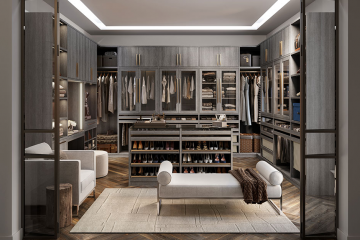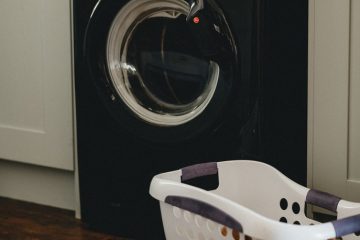How does HVAC impact guest experience in hotels?
- Guest Comfort: Ideal room temperatures (68°F-72°F) are key to guest satisfaction, with consistent and quiet HVAC performance being essential.
- Noise Control: Quiet HVAC systems help create a peaceful, restful atmosphere for guests, reducing complaints and improving reviews.
- Air Quality: Well-maintained HVAC systems enhance air quality, reducing allergens and odors, which contributes to a healthier and more pleasant environment.
- Energy Efficiency: Modern HVAC systems are eco-friendly, reducing energy costs while appealing to eco-conscious travelers.
- Temperature Consistency: Zoned systems ensure consistent comfort across all rooms and areas, from guest suites to event spaces.
Creating a comfortable and memorable experience for hotel guests involves many factors, and one significant but often overlooked element is the HVAC system. Whether it’s a cold winter night or a scorching summer day, the performance of a hotel’s heating or cooling system can significantly influence the quality of a guest’s stay.
In places like Las Vegas, where temperatures range from extreme heat to chilly desert evenings, the role of HVAC systems in guest satisfaction is even more critical. Here’s how your hotel’s heating and cooling system can affect the overall guest experience, and why it’s important to invest in a reliable setup.
Comfort is Key
A guest’s top priority is comfort. If your hotel’s HVAC system can’t maintain a pleasant temperature, guests will notice—and remember. A room that’s too hot or too cold leaves a lasting impression, often leading to complaints in reviews.
The ideal room temperature typically falls between 68°F and 72°F. An efficient HVAC system makes it easy to maintain this range, but an outdated or inconsistent setup can cause discomfort, leading to fluctuating room conditions and guest dissatisfaction.
Quiet Operation Matters
The last thing guests want after a long day is the disruptive noise of an HVAC system. A peaceful atmosphere is key to a relaxing stay, and older or poorly maintained systems can be a source of unwanted noise. Modern HVAC systems, by contrast, are designed to operate quietly, providing comfort without disruption.
Upgrading to a quieter system enhances the ambiance of guest rooms and improves overall satisfaction, which in turn can lead to repeat visits and positive recommendations.
Indoor Air Quality
Comfort isn’t just about temperature—air quality is equally important. Hotels are busy spaces, and poor air circulation can lead to stale air, unpleasant odors, and even health issues.
A well-maintained HVAC system with proper filtration and humidity control keeps the air fresh and reduces allergens and irritants. This not just creates a healthier environment but also enhances the overall guest experience.
Energy Efficiency Benefits Everyone
An energy-efficient HVAC system is beneficial for both the environment and your bottom line. It helps hotels reduce energy costs, savings that can be passed on to guests. With more travelers becoming eco-conscious, knowing your hotel values sustainability can make a positive impression.
Newer HVAC systems offer advanced technology that allows staff to monitor and adjust energy usage in real time, ensuring that rooms are heated or cooled only when necessary, further optimizing energy consumption.
Consistency Across Rooms
No guest wants to deal with a malfunctioning AC unit, especially when the room next door is perfectly comfortable. Consistency in heating and cooling is key to guest satisfaction. Modern HVAC systems provide better control over individual room temperatures, ensuring that every room is comfortable.
For larger properties, zoned HVAC systems allow different areas of the hotel to be set at different temperatures, providing comfort across all areas—from guest rooms to event spaces.
The Takeaway
A hotel’s HVAC system plays a significant role in shaping the guest experience. From maintaining the right temperature to improving air quality and reducing energy costs, an efficient heating or cooling system can give your hotel a competitive edge.
Is it time for an upgrade? Contact Evolve Air Conditioning & Heating for a consultation on optimizing your HVAC system. Our expertise can help ensure every guest has a comfortable stay—no matter the season.
FAQ
How can HVAC systems affect guest reviews in hotels?
Guests often rate their stay based on comfort, which is directly influenced by the HVAC system. Rooms that are too hot, too cold, or noisy can lead to negative reviews, while quiet, comfortable rooms encourage positive feedback.
Why is air quality important in hotels?
Good indoor air quality, maintained by a reliable HVAC system, reduces allergens, eliminates unpleasant odors, and promotes a healthy environment, all of which improve guest satisfaction and well-being.
What role does energy efficiency in HVAC systems play for hotels?
Energy-efficient HVAC systems help hotels reduce energy costs and align with eco-friendly practices, appealing to eco-conscious guests and improving the hotel’s reputation.
How does HVAC noise impact the guest experience?
Noisy HVAC systems can disrupt a guest’s rest, leading to dissatisfaction. Modern, quiet HVAC units create a peaceful atmosphere, ensuring a more enjoyable stay.
Why should hotels consider upgrading their HVAC systems?
Upgrading HVAC systems improves guest comfort, air quality, and operational efficiency, reducing energy costs and increasing the likelihood of repeat business from satisfied guests.
How can HVAC systems improve guest comfort in hotels?
By maintaining consistent and optimal temperatures between 68°F-72°F, modern HVAC systems ensure that guests feel comfortable in their rooms, which is vital for a positive hotel experience.
Can HVAC systems help with humidity control in hotels?
Yes, well-maintained HVAC systems can regulate humidity levels, which is especially important in regions with high humidity or dry climates. Proper humidity control enhances both air quality and guest comfort.
Do HVAC systems in hotels affect allergy-prone guests?
Yes, HVAC systems with advanced filtration can help remove allergens like dust, pollen, and pet dander from the air, creating a healthier environment for allergy-sensitive guests.
How do zoned HVAC systems benefit large hotels?
Zoned HVAC systems allow different areas of a hotel to be heated or cooled independently, ensuring comfort across guest rooms, lobbies, and event spaces, regardless of their specific temperature needs.
What are the long-term financial benefits of upgrading a hotel’s HVAC system?
Upgrading to energy-efficient HVAC systems reduces energy bills, lowers maintenance costs, and can extend the lifespan of the system. These savings contribute to better long-term financial performance for the hotel.


